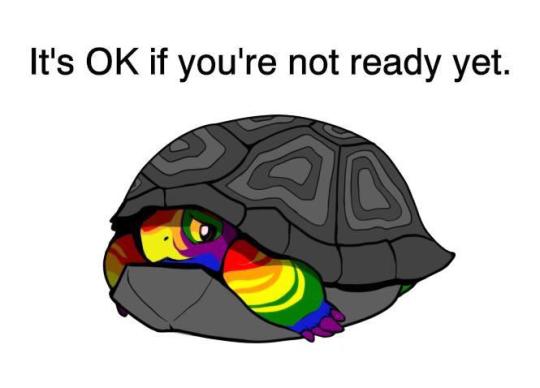This is the official blog of The Sydney Feminists, a not-for-profit activist, social and media education group based in Sydney, Australia.
Don't wanna be here? Send us removal request.
Text
Miles Frankin a.k.a. Brent of Bin Bin a.k.a. Mr. and Mrs. Ogniblat L’Artsau
Way before building each other up was cool or trendy, there was a woman already doing it all.

Miles Franklin was born Stella Maria Sarah Miles Franklin on October 14, 1879 in Talbingo N.S.W., Australia. She wrote historical fiction from feminist and nationalist perspectives. Because of these views, her books were controversial in Australia. The controversy even delayed the sequel to her first novel! Miles Franklin wrote not only under her own name but under two different pseudonyms: Brent of Bin Bin and Mrs. Ogniblat L’Artsau.
Franklin grew up on a cattle farm owned by her father near Tumut. Later it was changed to a dairy cattle farm. At sixteen, an article of hers was published in the Hebblewhite’s newspaper, the Goulburn Evening Penny Post. Some articles which appeared earlier may have been written by her, but no one knows for sure.
Her best-known novel, My Brilliant Career, was also her first one. She wrote it in her teens. The story is about a teenage girl growing up in the Australian brush who longs to break free and become her own person. Franklin published My Brilliant Career in 1901 when she was only 21. It was published by Blackwoods of Edinburgh. By the end of 1901, it had sold 1,012 copies. It would go on to sell another 1,105 copies in 1902. That is crazy amazing!
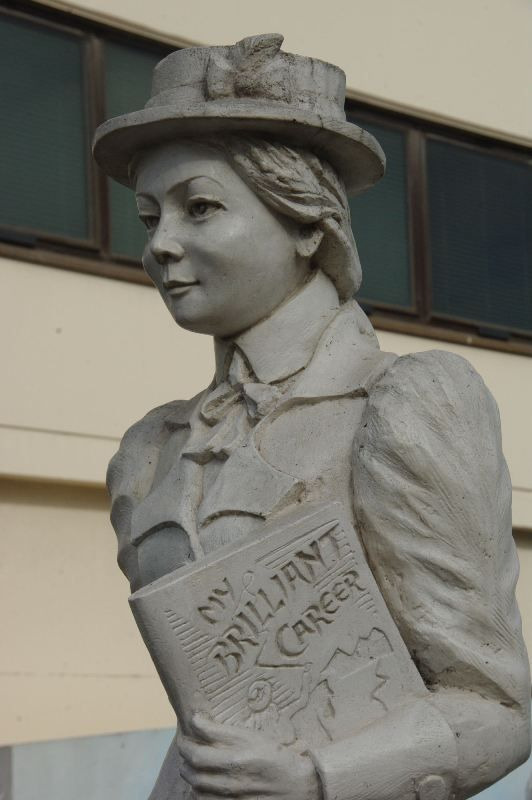
Image Credit: http://monumentaustralia.org.au/themes/people/arts/display/21623-miles-franklin
Franklin became a celebrity at only twenty-two. While she got fame, she didn’t receive money. Since My Brilliant Career was reprinted many times in Britain, and she was from Australia, she only received twenty-four euro equivalent for all the sales of her book. Between 1902 and 1915 she wrote the sequel to My Brilliant Career, My Career Goes Bung. But she was unable to publish it, as it was too controversial for anyone to print. It was eventually published in 1946.
After writing her first book, Franklin went off to America (‘Murka as she called it - so ahead of her time!), Chicago specifically, and began work as a secretary of the National Women’s Trade Union League of America. She held editorial positions on the League’s journal, Life and Labor, throughout her time there. She also suffered from ill health. She realized she needed some help and had the courage to ask for it. In 1912, she spent some time in a sanatorium. She did publish Some Everyday Folk and Dawn in 1909. This book was not well received. In Australia women had the right to vote (and the book describes this with a love story intertwined) and American’s were still fighting for the right. After this book, she decided to write under pseudonyms for twenty years!
She then wrote The Net of Circumstance under the pseudonym Mr. and Mrs. Ogniblat L’Artsau.
In 1915, Franklin moved to England. She helped during World War One as a cook and earned some money from journalism. From 1919 to 1926, Franklin worked as a Secretary with the National Housing and Town Planning Association in London. She organised a women’s international housing convention in 1924.
Franklin completed six novels under the pseudonym Brent of Bin Bin by 1933. Five were published in Franklin’s lifetime, one posthumously. The first, Up the Country, appeared in 1928, and was quickly reprinted a number of times. Ten Creeks Run followed in 1930 and Back to Bool Bool in 1931. She even concealed Brent’s identity from her publisher in the beginning.
Franklin made a point not to marry. She seemed to believe if she was married, she would have limitations or less time for things she enjoyed. After her father died, Franklin returned to Australia in November 1932. She lived for the rest of her life in the family home at Carlton. While in Australia, she did many things to help the writing community. She went to many events, from lunches to radio interviews to committees. Franklin stood for Australian literature.
In July 1936, Franklin won the S. H. Prior Memorial Prize of £100 for All That Swagger.
Miles Franklin died on September 19 1954. At her death, she left her estate to establish the Miles Franklin Literary Award. This award goes to the person who has written the best book or play that features “Australian life in any of its phases”. The first award was granted in 1957.
Not a bad life for a woman that took her nickname from an ancestor, Edward Miles, who had arrived in Australia as a convict in 1788.
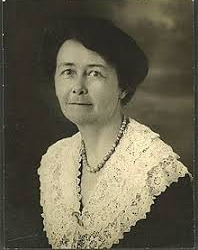
If you want to learn about Franklin, please look here and here. By: Alex Berg
Sources:
https://www.connotations.de/article/sanjay-sircar-my-career-goes-bung-genre%E2%88%92parody-australianness-and-anglophilia/
https://en.wikipedia.org/wiki/Miles_Franklin#Selected_works
https://www.literaryladiesguide.com/author-biography/franklin-sarah-miles/
https://www.britannica.com/biography/Miles-Franklin
http://pandora.nla.gov.au/pan/77226/20071011-0000/www.sl.nsw.gov.au/exhibitions/miles/miles_guide.pdf
Disclaimer: The views expressed in this piece do not necessarily reflect the views of the Sydney Feminists. Our Blogger and Tumblr serve as platforms for a diverse array of women to put forth their ideas and explore topics. To learn more about the philosophy behind TSF’s Blogger/ Tumblr, please read our statement here: https://www.sydneyfeminists.org/a
#miles franklin#feminist writers#feminism#feminist#feminist authors#female writers#female authors#women writers#women authors#women of history#historical women#australian women#australian writers#australian authors
16 notes
·
View notes
Text
If you and your partner practice frequent, non-sexual consent, your relationship will be healthier and easier.
“Are you comfortable with me ranting about my day for a few minutes?”
“Oh, this is your poetry? Would it be okay if I read it?”
“Do you mind if I use your phone for a few minutes?”
“Wow, your meal looks awesome. Could I try some?”
It will save a lot of grief, especially in a developing relationship. Eventually, with consistent “yes’s” and “no’s” you can figure out more permanent boundaries and guidelines.
“I need to ask before ranting about my day or taking their food, but my partner is okay with me using their phone whenever. However, my partner does not like me reading their poetry unless they offer first.”
180K notes
·
View notes
Text
v for vendetta is a film with a female protagonist that criticises capitalism, condemns pedophilia, encourages the viewers to question their governments, has a central plot about how LGBT people are condemned in right wing societies (more than three LGBT characters are in it) and was directed by a trans woman and her brother.
why has this become a fuckboy classic
256K notes
·
View notes
Photo

Laureana Wright de Kleinhans (1846-1896) was an early Mexican feminist. Through her magazines, Violetas de Anahuac and Mujeres de Anahuac, she promoted female education and the idea that men and women were intellectually equal.
She was a journalist and a member of numerous literary societies around Mexico, always advancing ideas of gender equality and the possibility of distancing oneself from the feminine ideal of marriage and motherhood. One of her greatest achievements is the book Mujeres notables mexicanas (1910), which contains 116 biographies of important Mexican women, of which 29 were indigenous – an important recognition at the time.
238 notes
·
View notes
Text
Five Things This Bisexual Feminist Wants You to Know About Pride
As I’m sure a lot of you are aware, June is celebrated as Pride Month in many parts of the world. These celebrations often include parades, rainbow colored EVERYTHING and heaps of social media posts reveling in everything LGBTQIA+. For a lot of people, Pride is a party – and rightly so. In a world that blatantly aims to keep us down, rejoicing in our lives and livelihoods is a form of resistance in and of itself. It’s important for us to let loose and have fun sometimes, to recharge and remind ourselves why we fight the good fight. However, during Pride Month (and really, all year round) it is equally critical to remember the painful parts of our history. Pride exists because people fought and died for a future we have yet to fully realize. As a part of this remembrance, it is imperative to highlight the ways in which various oppressed identities overlap and interact with LGBTQIA+ identities. By this statement, I simply mean we must remember and celebrate the black, trans, bisexual women who started Pride and continue fighting every day to ensure a safer future for all LGBTQIA+ people.
My last point is also significant to our understandings of feminism. Feminism must include a space for people from different oppressed minorities. My personal feminism is so tightly entwined with my identity as a bisexual person, it is nearly impossible to extract them. And those are only two of my many identities (which range from highly privileged to marginalized). So, while this piece isn’t directed specifically towards gender equality, I believe in my heart it is still “feminist”. Feminist movements must inextricably bind themselves to LGBTQIA+ rights movements. In the same vein, they must also join with anti-racist activism, disability activism, etc. As the famous slogan goes, our feminism must be intersectional, or it is bullshit. Whether you consider yourself a member of the LGBTQIA+ community or are just trying to better ally yourself with us, this article will hopefully resonate with you. It is only a short list and would benefit from additions from our lovely readers. So, feel free to comment things you want the world to about the LGBTQIA+ community. But, without further ado, here are my top five things I want everyone to know about Pride!
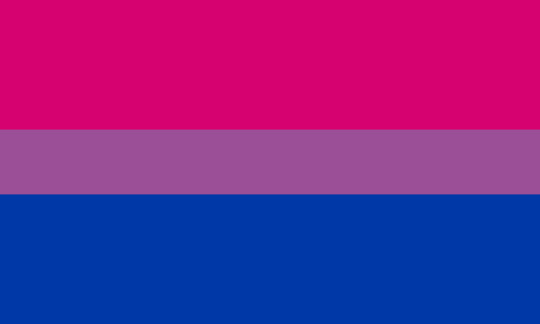
Image Description: The bisexual flag, which has a fat red stripe at the top, fat blue stripe on the bottom and a thinner purple stripe in the middle.
1. All M-Spec identities are valid and deserve a place in Pride celebrations. For those of you who don’t know, M-Spec is a term used to describe the multi-gender spectrum of attraction. It’s another, more inclusive way of talking about identities which fall under the “bi umbrella.” It includes bisexual people, pansexual people, polysexual people and anyone else who is attracted to two or more genders and wants to be included! There’s a lot of discourse about this subject, even within the LGBTQIA+ community. But Pride was started by a bisexual woman and I firmly believe she would have been inclusive of her M-Spec family (https://www.advocate.com/bisexuality/2014/06/17/remembering-brenda-ode-%E2%80%98mother-pride%E2%80%99).
2. No cops at pride. This point is another tenuous topic of discussion and has ended more than one friendship. But I think it’s important to state and even more important to analyze. The original pride was a riot, a protest specifically AGAINST the police state. It was meant to bring light to the very real, very visceral harm cops have done (and continue to do) to LGBTQIA+ people, especially BIPOC (black, indigenous people of color). I have heard all the counter-arguments and, for the most part, understand where people are coming from. But LGBTQIA+ people have the right to be fearful and distrustful of cops. Large masses of cops at pride don’t actually help keep any of us safe. There are better ways of creating and maintaining safe spaces for the LGBTQIA+ community (http://www.aaronxrose.com/blog/alternatives-to-police).
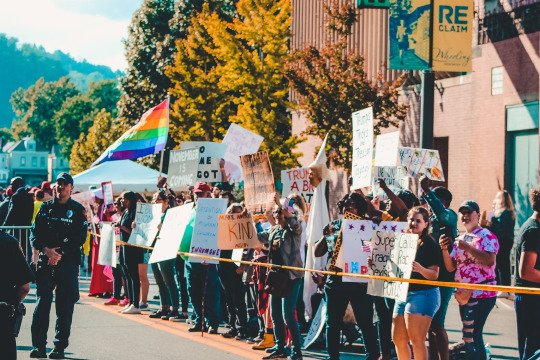
Image Description: Photo of a crowd of people holding up protest signs and the LGBTQIA+ flag. They are standing behind red police tape. Two police officers are standing in the road on the left side of the photo.
3. Our Pride celebrations absolutely MUST be accessible. This means, at the very least, wheelchair accessible venues and toilets, sign language translators, accessible parking spots, among many other examples. I would also personally love to see accommodations made for autistic people at Pride events. The crossover between autistic people and LGTQIA+ people is huge, and we deserve to feel comfortable and safe at big events like Pride.
4. Please don’t assume “straight-looking” people are just allies and/or don’t belong at pride. I personally don’t mind cishetallo (cis, hetereosexual, allosexual, aka the opposite of asexual) people attending Pride events if they are aware of their place there. I enjoy bringing my straight boyfriend to Pride festivities and sharing that part of my life with him. However, just because you see a couple comprised of what you assume to be a “boy” and “girl”, it does not mean they aren’t part of the LGBTQIA+ community. Firstly, people you perceive to be one gender could be another/ non-gendered. I’m thinking especially of my nonbinary pals here. Second, one or both parts of a couple could fall under the M-Spec umbrella. Lastly, people could be questioning their sexual and gender identities. It’s not your (or our) place to judge people or interrogate their reasonings for being at Pride. As long as they are being respectful of the space, just live and let live!
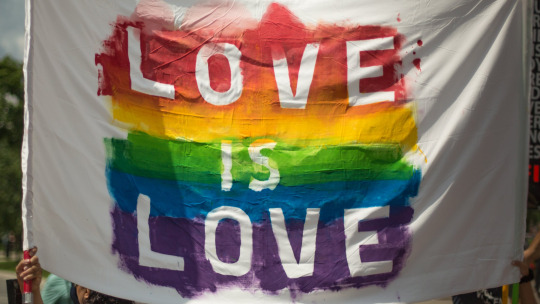
Image Description: Photo of someone holding up a large, white sheet attached to two wooden poles. The middle of the sheet is painted messily in the colors of the rainbow. White, black letters are stenciled in the paint. They read “Love is love.”
5. If you are a member of the LGBTQIA+ community, whatever that means to you, you deserve love, happiness and to feel safe. I wanted this last one to just be a shout out to my fellow LGBTQIA+ folks. I see you, I hear you, I want to validate the fuck out of you. Pride isn’t always a feel good, amazing time for all LGBTQIA+ people. If it’s not for you, please don’t feel bad. Whatever you need to do to protect yourself and your emotional state, do that. If celebrating who you are means watching your favorite show on Netflix all weekend in bed, that’s perfectly alright. No two of us are the same, and we are every single one of us amazing and wonderful. Yes, you too. Sending my love your way and hoping you find it in your heart to love yourself a bit more this month.
By: Brittany L.
Disclaimer: The views expressed in this piece do not necessarily reflect the views of the Sydney Feminists. Our Blogger and Tumblr serve as platforms for a diverse array of women to put forth their ideas and explore topics. To learn more about the philosophy behind TSF’s Blogger/ Tumblr, please read our statement here: https://www.sydneyfeminists.org/a
#feminism#feminist#intersectional feminism#intersectional#intersectionality#pride#pride month#LGBTQIA+#LGBTQ#LGBTQ pride#LGBTQ community#LGBTQIA+ community#bisexual#pansexual#polysexual#m-spec#m-spec identities#fuck the cops#transgender rights#trans rights#inclusivity#love is love#bisexuality#bi#pan#stonewall#stonewall was a riot#LGBTIQIA+ rights#activism#protest
6 notes
·
View notes
Photo

lover, lover, lover.
(Happy Independence day, Philippines, and happy Pride!)
30K notes
·
View notes
Text
If you would report an undocumented immigrant to ICE you would have reported me to the Nazis and I don’t fucking trust you
355K notes
·
View notes
Photo
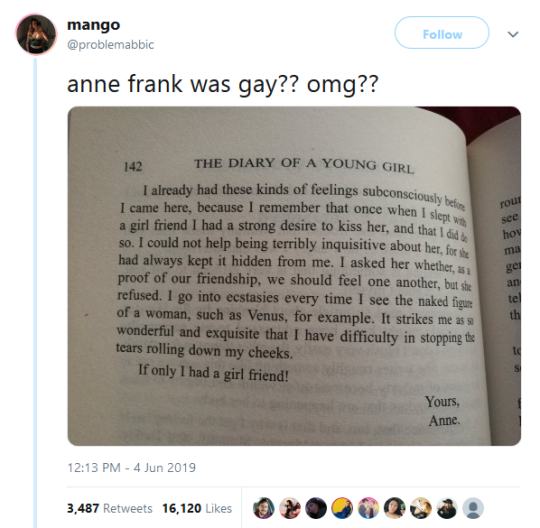

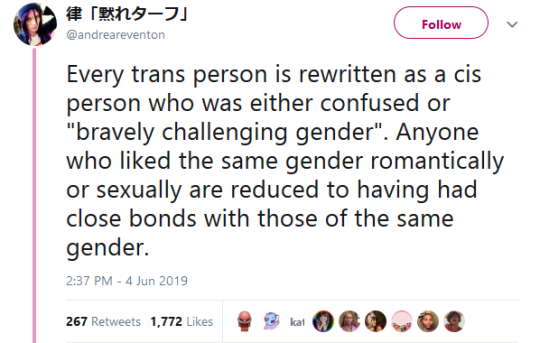
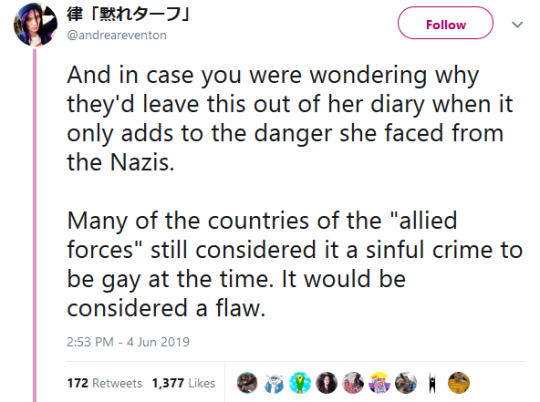
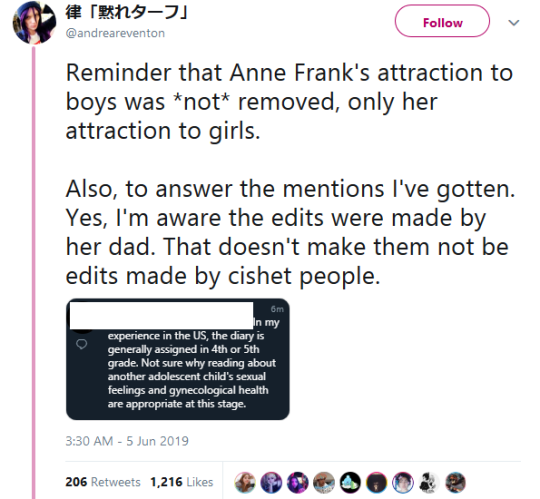
I’m just now finding out Anne Frank was bi??? OMG
163K notes
·
View notes
Link
I’ve seen this growing up and I see it now with my generation. I see more active fathers and more stay at home husbands but it’s still nowhere near equal and I just don’t want to be stuck in this situation. I don’t understand why women do this either.
1K notes
·
View notes
Text
Gender Inequality Across the Globe
If every woman in Australia was asked whether they have experienced gender inequality, have ever been made to feel inadequate because of their gender, or have felt uncomfortable and scared being somewhere alone, it would be hard to imagine any woman saying no. As a developed country which has progressed a lot over the last 50 years in regards to the opportunities and rights of women, multiple examples of gender inequality are still woven into the fabric of our culture. The gender pay gap is at the lowest it has been in the last 20 years, but women are still paid 14.6% less than their male counterparts. Domestic violence, sexual assault, and sexual harassment are unfortunately experienced by lots of women on a regular and sometimes daily basis. Women still feel scared and vulnerable in places that should feel safe. None of this is good enough.
However, despite everything, Australian women have more opportunity than a lot of women around the world. Yes, gender inequality is still present in almost all important areas of society. But there are women in countries across the world who do not even have the right to voice their opinions and campaign for change. These women experience inequalities that most women in Australia cannot even imagine.
Bridal virginity testing in Afghanistan
In some more conservative countries, the practice of no sex before marriage is placed in such high esteem that the bride is forced to prove her virginity and, to an extent, her worth on her wedding night. Afghanistan still practices virgin testing. Their laws say if a woman is having sex for the first time on her wedding night, then she should bleed on the sheets. To prove her purity, the bride is required to present her new in-laws with the blood-stained sheets after she and her husband have sex for the first time. If a woman does not bleed and therefore has no proof for her in-laws, she is viewed as “damaged”. In this case, they have the authority to exchange [b5] the bride for her sister if she is not yet married. Having pre-marital sex is considered adultery in Afghanistan, and in some parts, women can be imprisoned for it. In the most extreme cases, the “damaged” bride is mutilated by having her ears or nose cut off or ultimately killed. If that’s the case, her body is then being returned to her parents. This practice fosters a culture in which a women’s worth and value are measured by her body and the decisions she makes about it. So much so, that if she does not meet the standard expected of her as a woman and a wife, the punishments she faces put her life in danger.

Image Description: The image depicts a close-up shot of a Muslim woman’s face in black and white. She has a serious expression on her face and is wearing a black hijab. A hijab is a piece of material that covers a Muslim woman’s hair, neck, and shoulders and is worn due to religious beliefs.
Umoja Village in Kenya
In Northern Kenya, in the Samburu grasslands, there is a village called Umoja. It is well known for its strict policy of ‘no men allowed.’ The residents of the village are women and children only. Originally, Umoja was formed in 1990 as a place for women to escape rape and assault from British Soldiers. But it has remained a growing refuge for women who flee similar fates in their home life. The women and children who live in Umoja come from all sorts of disadvantaged backgrounds, including sexual and domestic assault and violence at the hands or their husbands or other male family members. Some of the women seeking sanctuary left their homes to protect their children, especially their daughters, from these kinds of horrors. Arranged child marriages, female genital mutilation, and sexual abuse are sadly more common than not in Kenya. Umoja is a place for desperate mothers looking to secure safety for themselves and their kids. The women of the village focus on becoming as self-sufficient as possible, especially in regards to making money and providing for themselves. Umoja is located close to a safari base camp, and a lot of tourists stop by the village and purchase jewelry made by the women. The jewelry is a main source of income for them. The safety and support these women find amongst one another are more than some of them could have ever imagined. But the fact that such a place exists and such measures need to be taken only serves to further emphasise the changes needed in countries like Kenya, where these issues are still occurring.
The rejection of India’s daughters
According to the 2017-2018 Economic Survey conducted in India, the still-prevalent ideology of Indian families preferring sons has resulted in the birth of 21 million girls who are, essentially, India’s unwanted daughters. The desire for a son over a daughter is so strong, it is common for couples to stop trying to have children once they have a son, and continue trying if they only have daughters. A lot of these girls end up classified as ‘missing,’ as parents often abandon or gruesomely kill their daughters shortly after they are born. This practice can include burying them alive, suffocating them with a pillow, poisoning them and starving them to death. The traditional cultural practices still employed in India have led to daughters being viewed as undesirable. Daughters can become expensive in Indian culture as well, as they require a dowry for their husband’s family, cannot carry on the family name (which is very important), and eventually move in with their in-laws and therefore will not be able to care for their parents in their old age.

Image Description: This image depicts a young girl around the age of 12 who is of Indian descent. She has her hair pulled back from her face and is wearing a dark brown T-shirt. She has a red ‘bindi’ in the middle of her eyebrow, which is of cultural significance and looks like a smudge of bright red paint. She has a silver stud in her nose and gold earrings that hang quite low. The background is blurred slightly, however, the ground looks like brown grass. There are people far in the background, and two motorcycles are visible.
Anti-abortion laws in America
Perhaps one of the most controversial issues in the news lately is the anti-abortion laws introduced in numerous American states. In a country viewed as one of the most powerful and influential nations in the world, taking away women’s right to make such an important choice about their lives and bodies is almost unbelievable. Yet, multiple states have done it, and more are following suit. The logistics of the laws, as well as the punishments, differ from state to state, but the results are the same; although a man can easily walk away from an unwanted pregnancy, a woman no longer can. Georgia, like a few other states, has signed what is called the “heartbeat” bill. Essentially, this bill means that once a heartbeat is detected, which can sometimes be as early as six weeks, an abortion becomes illegal. An exception for rape can be made, but only if the woman first reports the rape to the police before she gets the abortion. The current, low level of reported cases of rape and sexual assault is the result of both low conviction levels and the added trauma it can cause victims. This law could potentially force women to report these cases before they are ready. In some states, rape is not even considered an exception and an abortion is still illegal.
In the fight to achieving gender equality for women, it is important we look past our own circumstances at times, and educate ourselves on the lives of women in other countries around the world, particularly those who experience far worse inequalities than us. Australian women fight battles and break down barriers every day to change the inequalities we still experience. But, we are privileged in the sense that we are not restrained in our attempts to campaign for equality. It is important that, as women with a voice, we aim amplify the voices of others and work towards freedom for all women, both in Australia and around the world.
By: Georgia Stevens
References:
https://www.theguardian.com/global-development/2015/aug/16/village-where-men-are-banned-womens-rights-kenya
https://edition.cnn.com/2018/01/30/health/india-unwanted-girls-intl/index.html
https://www.indiacelebrating.com/social-issues/gender-inequality-in-india/
https://www.breitbart.com/national-security/2015/12/07/afghan-brides-face-death-fail-virginity-tests/
https://unwanted.interactivethings.io/#/methods
https://www.aljazeera.com/news/2019/05/states-passed-abortion-bans-190514142646289.html
https://www.wgea.gov.au/sites/default/files/documents/Gender%20Pay%20Gap%20Statistics%20Fact%20Sheet%202019%20FINAL%20February.pdf
Disclaimer: The views expressed in this piece do not necessarily reflect the views of the Sydney Feminists. Our Blogger and Tumblr serve as platforms for a diverse array of women to put forth their ideas and explore topics. To learn more about the philosophy behind TSF’s Blogger/ Tumblr, please read our statement here: https://www.sydneyfeminists.org/a
#feminism#feminist#international feminism#international#women around the world#women around the globe#women of color#women's rights#activism#women's health#women's healthcare#genital mutilation#arranged marriages#anti-abortion laws#anti-abortion#bridal virginity testing#virginity#virgins#women helping women#women supporting women#strong women
3 notes
·
View notes
